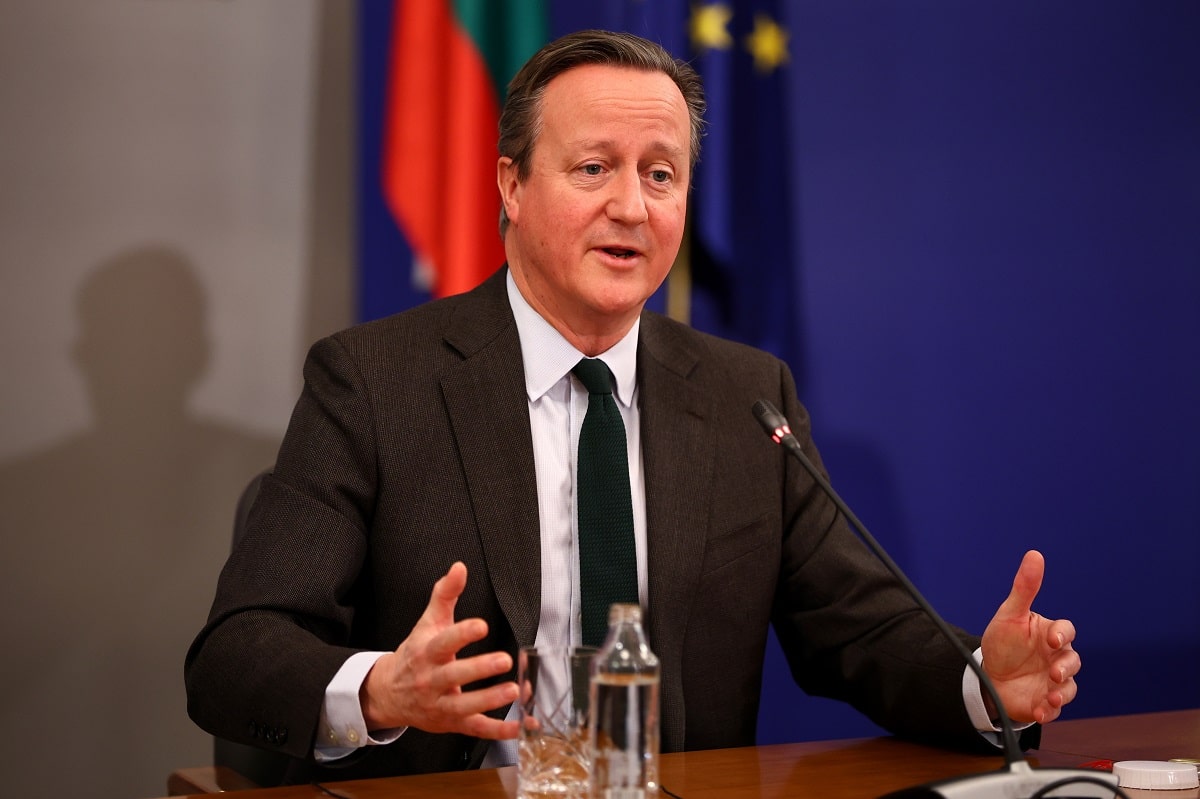Foreign Secretary David Cameron has ruffled a few feathers in American politics while urging the US to pass a $95 billion foreign aid package that would send a substantial amount to Ukraine.
Diplomatic Appeal for U.S. Support
The foreign ministers of the United Kingdom and Poland made a joint appeal urging the U.S. Congress to approve a significant $60 billion aid package for Ukraine.
Politicians across the pond have been at loggerheads for months now regarding a potential $95 billion foreign aid bill, as critics argue it doesn’t do enough to protect the Southern Border.
Urgent Request for Military Aid
David Cameron of the UK and Radek Sikorski of Poland spoke of the critical nature of providing aid to Ukraine amid its ongoing conflict with Russia.
Both ministers stressed that supporting Ukraine in its struggle against Russian aggression is a national responsibility and a collective duty of NATO allies.
Cameron’s Assertion of the Challenge
Cameron framed aiding Ukraine as the “challenge of our generation” and asked, “Do we have the political will to match it.”
“I believe our joint history shows the folly of giving in to tyrants in Europe who believe in redrawing boundaries by force.”
What he said next angered right-wing politicians of the US, especially Marjorie Taylor Greene, after the British foreign secretary likened those opposed to the bill to having the “weakness displayed against Hitler.”
“I do not want us to show the weakness displayed against Hitler in the 1930s. He came back for more, costing us far more lives to stop his aggression.” Cameron said.
Republican Politician’s Response
In response, US Republican Marjorie Taylor Greene said, “I really don’t care what David Cameron has to say.”
Greene also believes Cameron used “rude name-calling and I don’t appreciate that type of language” before telling Cameron to “worry about his own country.”
Greene is a vocal supporter of Donald Trump, the former president who recently used names like “bird-brain” to describe his fellow Republican GOP candidate Niki Haley.
Importance of Swift Congressional Action
Aside from the Nazi Germany comparisons, Cameron warned the US against allowing Russian leader Vladimir Putin to “think he can out-wait us or last us out, and that’s why this vote in Congress is so crucial,” he said.
Cameron expressed his appeal as “someone who has a deep and abiding love of the United States — of their democracy, of their belief in freedom — but (also) as someone who really believes in the importance of our alliance.”
Former President’s Criticism
Former President Donald Trump has made an impact on the delay in passing the bill after criticizing it through online posts.
Trump recently made remarks at a South Carolina rally, where he insisted he would let Russia “do whatever the hell they want” to an unnamed NATO country.
Hard-line Republicans in the House, aligned with former President Donald Trump, have opposed the legislation, creating a hurdle in the approval process.
House Speaker Mike Johnson said that the bill, which was an attempt to compromise between foreign aid and border control, would be “dead on arrival” if it ended up at his desk.
Implications Beyond Europe
Cameron argued that the U.S. decision extends beyond a European concern, with potential global implications and scrutiny from nations like China and Iran.
“There’ll be other people watching what the U.S. will do. They will be watching in China, they will be watching in Iran and every country around the world will be watching to say: are we, the Western countries, are we reliable allies?” Urged Cameron.
Cameron’s remarks ruffled a few feathers, but there’s still a long way to go before the bill’s fate is decided.
More Articles Like This…
Broken Britain: 12 Reasons Behind the UK’s Decline
Say the Unsayable: 10 Occasions When Farage Spoke His Mind About Britain
The post Cameron Ruffles Republican Feathers, Urging US to Pass Ukraine Bill first appeared on Edge Media.
Featured Image Credit: Shutterstock / Belish.
Oscar Davies, an expert in US and UK politics and sports, is renowned for his sharp and engaging writing style, appealing to a broad spectrum of readers.

